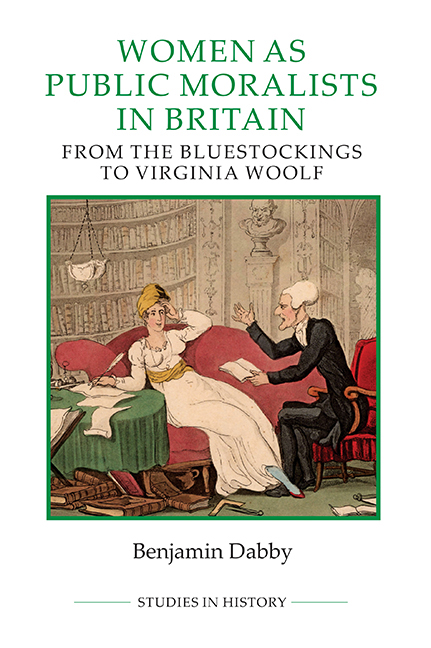Book contents
- Frontmatter
- Dedication
- Contents
- List of illustrations
- Acknowledgements
- Abbreviations
- Introduction
- PART I HISTORY AND THE PRESENT
- PART II LITERATURE, ART AND LIFE
- PART III CHANGE AND CONTINUITY FROM THE FIN-DESIÈCLE TO MODERNITY
- 7 Eliza Lynn Linton and feminism at the turn of the century
- 8 Beatrice Hastings, Rebecca West and women's rights at the turn of the century
- 9 Virginia Woolf's common reader and her social criticism
- The contexts of conclusions
- Bibliography
- Index
7 - Eliza Lynn Linton and feminism at the turn of the century
from PART III - CHANGE AND CONTINUITY FROM THE FIN-DESIÈCLE TO MODERNITY
Published online by Cambridge University Press: 25 October 2017
- Frontmatter
- Dedication
- Contents
- List of illustrations
- Acknowledgements
- Abbreviations
- Introduction
- PART I HISTORY AND THE PRESENT
- PART II LITERATURE, ART AND LIFE
- PART III CHANGE AND CONTINUITY FROM THE FIN-DESIÈCLE TO MODERNITY
- 7 Eliza Lynn Linton and feminism at the turn of the century
- 8 Beatrice Hastings, Rebecca West and women's rights at the turn of the century
- 9 Virginia Woolf's common reader and her social criticism
- The contexts of conclusions
- Bibliography
- Index
Summary
The career of Eliza Lynn Linton (1822–98) illustrates how successfully women of letters adapted to new pressures on women's public moralism in the last decades of the nineteenth century. The campaigns for women's legal rights in respect of property, marriage and suffrage challenged moralists to take a political position on women's rights. At the same time, the economy of journalism was changing with the repeal of the stamp tax in 1855 and the paper tax in 1861. Cheaper production enabled a new level of competition in the periodical marketplace as new titles reached larger audiences thanks to improved literacy and advertising. The construction of train lines in the 1840s also increased the demand for cheap and swiftly digestible magazines which put pressure on the traditional sites of women's mainstream public moralism, since the prestigious old journals such as the Edinburgh, the Quarterly, Blackwood's and the Athenaeum now had to compete with a host of new weeklies. In an effort to capture and hold a share of this lucrative market, editors increasingly promoted their star writers by abandoning the practice of unsigned articles. The practice of anonymity, moreover, had come to be seen as a mask for irresponsible criticism with nothing but a critic's ‘sense of duty to hinder him from playing fast or loose with his convictions’. This posed another challenge to women writing in the press because their visibility could reinvigorate claims in some quarters that women's voices ought to be limited to women's issues, and fuel new arguments for women's ‘natural’ sphere.
The changing literary marketplace meant that many men and women of letters, especially those at the start of their careers, had to abandon the practice of lengthy unsigned articles in favour of shorter pieces of journalism for the weekly press, which is where Linton made her name. Born in Keswick, Cumbria, to Charlotte Alicia Lynn and James Lynn, a local vicar, she had decided early on to make her own living by writing. In her old age Eliza remembered fondly the fierce republicanism of her youth, despite or perhaps because of her father's unwavering Tory politics, and she recalled her equally strong conviction that reading and self-education would prepare her for a career in the London press.
- Type
- Chapter
- Information
- Women as Public Moralists in BritainFrom the Bluestockings to Virginia Woolf, pp. 177 - 191Publisher: Boydell & BrewerPrint publication year: 2017



